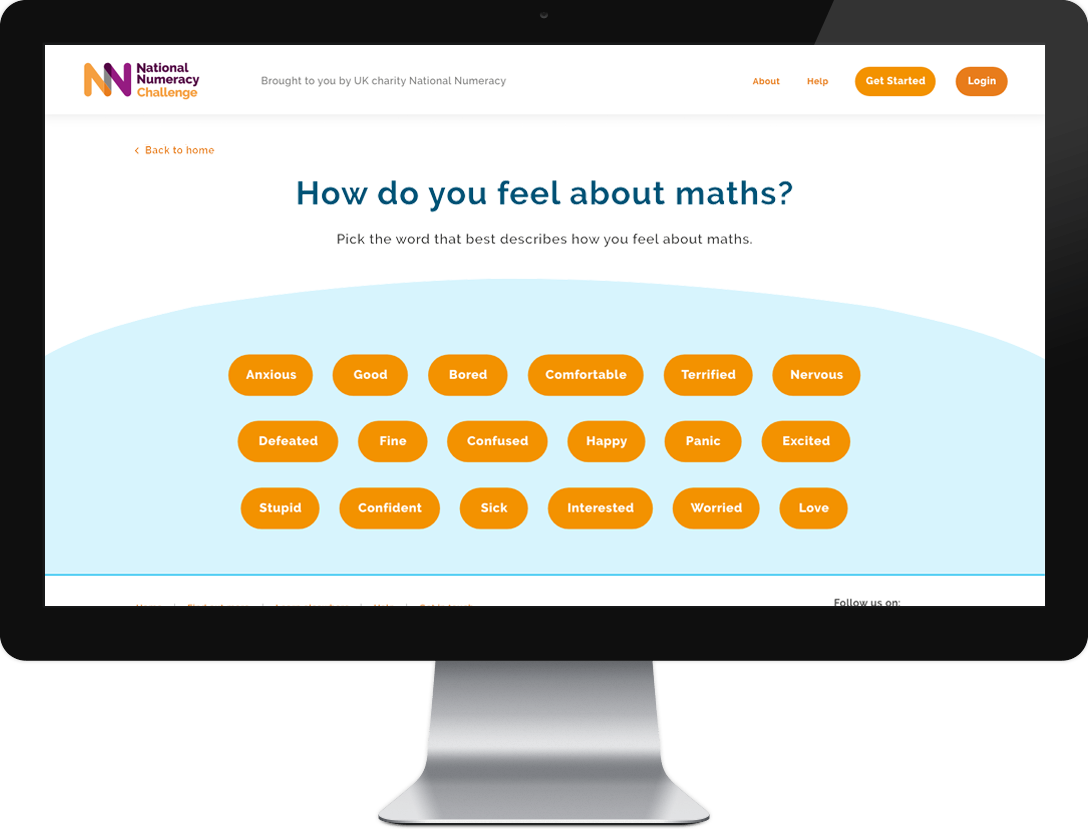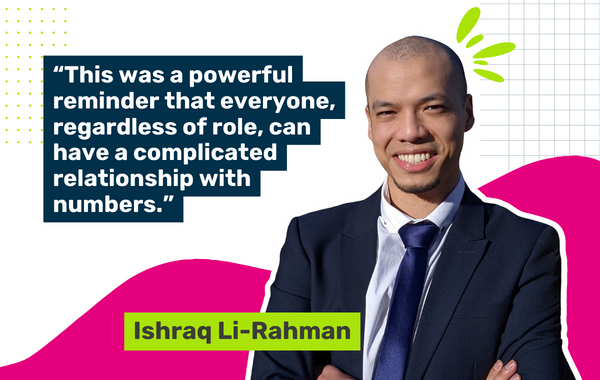- 22% of 18–24-year-olds say their mental health has suffered due to their struggles with maths.
- 39% of 18-24-year-olds say a lack of maths confidence means it is harder to cope with the stresses of life (e.g. managing money, getting a job, getting on at work and managing health).
- 22% of 18-24-year-olds say that lacking maths confidence has prevented them from learning new things.
- 23% of 18–24-year-olds say the cost-of-living crisis has made them feel worse about their number skills.
Struggling with maths has affected mental health
Over a fifth of 18–24-year-olds (22%) say their mental health has suffered due to their struggles with maths.
In contrast, only 11% of 45–54-year-olds and 4% of 55+ adults say the same.
Furthermore, 39% of 18-24-year-olds say they find it harder to cope with the stresses of life, such as managing money, getting a job, getting on at work and managing health, because they lack confidence in maths.
Gen Z begin adulthood deeply anxious about maths
The research, commissioned by independent charity National Numeracy, suggests that Gen Z has exited the education system with deep anxieties about the basic numeracy needed in everyday life.
The YouGov study of 2000+ UK adults reveals nearly a third (32%) of UK adults admit a lack of maths confidence makes it harder to cope with the stresses of life, such as managing money, getting a job, getting on at work, and managing health. This rises to 39% of 18-24-year-olds, the highest level of all adult age groups.
Perhaps unsurprisingly, almost one in five (19%) 18-24-year-olds keep their lack of maths confidence a secret, no doubt adding to mental health struggles.
Lack of maths holding young people back from learning and socialising
A lack of maths confidence has also meant that 22% of 18-24-year-olds say it has held them back from learning new things. Meanwhile 16% would even go as far as to say that their lack of maths confidence has held them back from contributing to a community, such as socialising with friends, joining groups, or volunteering.
Meanwhile, the UK’s bleak economic situation has seriously dented the numeracy of 18 to 24-year-olds, with almost a quarter (23%) saying the increase in the cost-of-living has made them feel worse about their number skills.
According to the World Health Organisation, mental health is a state of mental well-being that enables people to cope with the stresses of life, realize their abilities, learn well and work well, and contribute to their community.
Maths education needs significant reform
Sam Sims, Chief Executive of National Numeracy, said: "Our research makes for a sobering read; the findings confirm what we as a charity have known for some time: maths education in the UK needs significant reform. It is unacceptable that young adults find it hard to cope with the stresses of life due to a lack of confidence in maths.
“Today's young adults have spent their entire educational journey learning about maths but have entered adult life feeling not just ill-equipped to use the maths they have learnt but without the maths confidence they need to cope, let alone flourish, and fulfil their potential.
“This not only has a limiting impact on the life-chances of young adults, but far-reaching implications for the nation as a whole. Too many young adults will lack the maths confidence to navigate their way through jobs, housing, finances, and families. It is an issue holding back an entire generation which needs urgent attention.
"We would like to see maths education grounded in the real-life maths needed outside of the classroom for everything from managing money to getting on at work. A new approach to ensure every young person leaves school maths confident, no matter what level of attainment as well as supporting teachers and educators, is needed to deliver improved numeracy for all."
Tips from Dr Linda about building number confidence
In response to its latest research National Numeracy has appointed world-renowned psychologist Dr Linda Papadopoulos as their latest ambassador as it continues to explore the link between a lack of number confidence and its effects on mental health.
Dr Linda has recorded several tips for overcoming maths anxiety and building confidence, which are available for free as part of the charity’s National Numeracy Day campaign on Wednesday 22 May.
The charity urges anybody who may feel overwhelmed by numbers to visit its website for help and support. The online National Numeracy Challenge aims to incrementally improve people’s confidence with maths and is a great way to build confidence at a pace and level that adapts to every user.
For media queries, please contact:
Cass Lawrence, Head of Communications, National Numeracy
Notes to Editors:
Research Methodology: All figures, unless otherwise stated, are from YouGov Plc. Total sample size was 2238 adults. Fieldwork was undertaken between 9th - 10th May 2024. The survey was carried out online. The figures have been weighted and are representative of all UK adults (aged 18+).
About National Numeracy: National Numeracy is a charity dedicated to helping people feel confident with numbers and using everyday maths. Our mission is to empower children and adults in the UK to get on with numbers so they can fulfil their potential at work, home and school. Our work improves how people understand and work with numbers in everyday life, sparking better opportunities and brighter futures. National Numeracy is a registered company (company no: 7886294) and charity (charity no: 1145669). Visit: www.nationalnumeracy.org.uk
About National Numeracy Day: National Numeracy Day on 22 May 2024 is the UK’s only day dedicated to everyday maths. It aims to inspire everyone to have the confidence and skills to work with, and understand numbers, so they can get on in life. One simple step is to try the National Numeracy Challenge. The campaign is run by the UK charity National Numeracy with the campaign’s founding supporter KPMG and supported by an ever-growing list of organisations who believe in improving the nation’s numeracy.
Photo: Mart Production, Pexels









